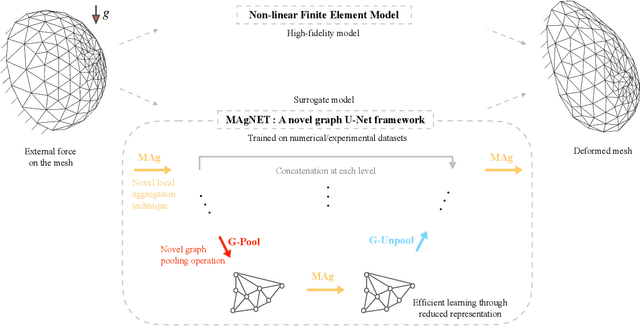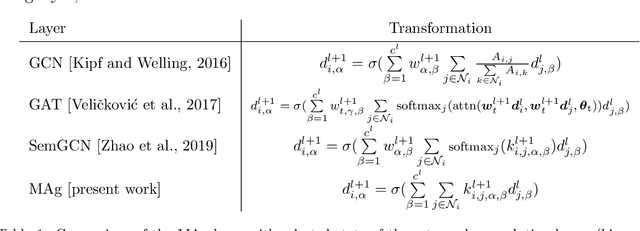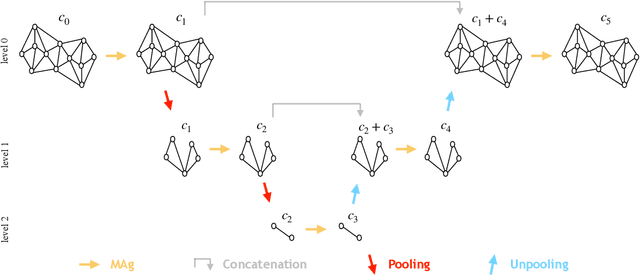MAgNET: A Graph U-Net Architecture for Mesh-Based Simulations
Paper and Code
Nov 01, 2022



Mesh-based approaches are fundamental to solving physics-based simulations, however, they require significant computational efforts, especially for highly non-linear problems. Deep learning techniques accelerate physics-based simulations, however, they fail to perform efficiently as the size and complexity of the problem increases. Hence in this work, we propose MAgNET: Multi-channel Aggregation Network, a novel geometric deep learning framework for performing supervised learning on mesh-based graph data. MAgNET is based on the proposed MAg (Multichannel Aggregation) operation which generalises the concept of multi-channel local operations in convolutional neural networks to arbitrary non-grid inputs. MAg can efficiently perform non-linear regression mapping for graph-structured data. MAg layers are interleaved with the proposed novel graph pooling operations to constitute a graph U-Net architecture that is robust, handles arbitrary complex meshes and scales efficiently with the size of the problem. Although not limited to the type of discretisation, we showcase the predictive capabilities of MAgNET for several non-linear finite element simulations.
 Add to Chrome
Add to Chrome Add to Firefox
Add to Firefox Add to Edge
Add to Edge